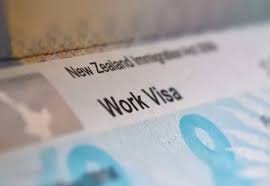Introduction
Embarking on a journey to New Zealand is a dream for many, drawn by its stunning landscapes, vibrant culture, and friendly locals. However, before you can revel in the beauty of Aotearoa, understanding the intricacies of obtaining a New Zealand visa is crucial. This article delves into the specifics of two essential categories – the New Zealand Tourist Visa and the New Zealand Business Visa.
New Zealand Tourist Visa
For those seeking to explore the breathtaking landscapes and vibrant culture of New Zealand, the Tourist Visa is the gateway to an unforgettable experience. This visa allows individuals to visit the country for leisure, tourism, or family visits. Let’s break down the key details:
Eligibility Criteria:
To qualify for a New Zealand Tourist Visa, applicants must demonstrate the intention of a genuine visit. This may include plans for sightseeing, visiting friends or family, or participating in short-term courses or conferences.
Application Process:
The application process typically involves submitting the required documents, including a valid passport, proof of funds to cover expenses, and a return ticket. Additionally, applicants may need to provide details of their travel itinerary and accommodation arrangements.
Duration of Stay:
The Tourist Visa allows for a stay of up to 9 months in New Zealand. It’s essential to adhere to the specified duration and comply with the visa conditions to avoid any legal complications.
Extensions:
In certain circumstances, extensions may be granted for the Tourist Visa. However, applicants must prove that their stay is still genuine and comply with the immigration regulations.
New Zealand Business Visa
For those with entrepreneurial aspirations or business-related ventures, the New Zealand Business Visa is the key to unlocking opportunities in this thriving economy. Here’s what you need to know:
Categories of Business Visas:
The Business Visa category encompasses various visas tailored to different business activities. These include Investor Visas, Entrepreneur Visas, and visas for employees transferred by multinational companies.
Investor Visas:
Designed for individuals with a significant sum to invest in New Zealand, Investor Visas have specific financial criteria. Investors are typically required to make a qualifying investment in the country and demonstrate their business acumen.
Entrepreneur Visas:
Entrepreneurs looking to establish or buy a business in New Zealand may opt for the Entrepreneur Visa. This category requires a comprehensive business plan, proof of funds, and a commitment to actively manage the business.
Employee Transfers:
Multinational companies seeking to transfer key employees to their New Zealand operations can do so under the Business Visa category. This streamlines the process for skilled workers to contribute to the country’s economy.
Conclusion
Navigating the New Zealand visa landscape requires a clear understanding of the specific requirements and conditions associated with each category. Whether you’re planning a leisurely trip to explore the wonders of the country or aiming to tap into its economic opportunities, the Tourist and Business Visas provide distinct pathways.
It is crucial for applicants to meticulously follow the application guidelines, submit the required documents, and adhere to the specified timelines. Additionally, staying informed about any updates or changes to immigration policies is essential to ensure a smooth visa application process.
In conclusion, as you prepare for your New Zealand journey, whether for leisure or business, thorough research and compliance with visa regulations will pave the way for a fulfilling and successful experience in this enchanting corner of the world.

